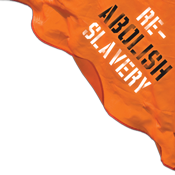“Back in room 306, King and Abernathy ordered a lunch of catfish and salads brought up from the dining room. Alas, the waitress arrived with the catfish all on one plate. Irritated, Abernathy started to send her back for another plate, but King intervened. ‘It doesn’t matter,’ he told Abernathy. ‘You and me can eat from the same plate.’ The catfish was delicious–one of their favorite dishes. As they shared their platter, King sampled both bowls of salad, eating out of Abernathy’s too…
“It was now six and time to go. As Kyles headed down to the parking lot, King stood at the iron railing by himself, facing a row of rundown buildings in some trees beyond Mulberry street. At that second, there was a report of a highpowered rifle, and a bullet tore into the right side of King’s face with such force that it drove him violently backward. He grasped for his throat, crumpling to the balcony floor with his feet prodruding through the bottom rail…
“With the organ groaning in the background, Abernathy intoned, ‘We gather here this morning in one of the darkest hours in the history of black people of this nation, in one of the darkest hours in the history of all mankind.’ The choir sang some of King’s favorite hymns–‘When I Survey the Wondrous Cross’ and ‘In Christ There Is No East Nor West’–and Harold DeWolf gave the tribute. At Coretta’s request, Abernathy had a tape played of King’s own eulogy, ‘A Drum Major for Justice,’ given at Ebenezer the past February. Once again that mellifluous voice swept through the church, the church he had joined on another spring day thirty-four years before, the church in which he had been baptized and ordained to spread the gospel of his Christ. ‘But I just wanted to leave a committed life behind,’ his voice cried in the hushed sanctuary. ‘Then my living will not be in vain.’
“The pallbearers carried him out to a special hearse–a farm cart drawn by two mules, which symbolized his poor people’s campaign, his own last and greatest dream. Then with bells shattering the humid day and 120 million Americans watching on television, the cart started forward to the clop, clop of the mules, carrying Martin Luther King on his last freedom march, with Abernathy and his young aides–many of them dressed in the poor people’s uniform of faded jeans and overall jackets–moving beside and behind their fallen leader. Some 50,000 people toiled along behind the cart, suffering from the muggy heat as they passed thousands of muted onlookers, most of them black. The line of march led past the domed Georgia capital, where Lester Maddox was sitting in his office under a heavy guard. At last the great cortage reached the tree-shaded campus of Morehouse college, where King had discovered Thoreau and found his calling under the guidance and inspiration of Benjamin Mays. Now, at the portico in Harkness Hall, Mays gave the eulogy to King, to a man who had come preaching love and compassion and brotherhood rather than cynicism and violence; a man who, as a Negro, had had every reason to hate America but who had loved her passionatly instead and had sung of her glory and promise more eloquently than anyone of his generation, maybe of any generation.
” ‘We have assembled here from every section of this great nation and from other parts of the world to give thanks to God that He gave to America, at this moment in history, Martin Luther King, Jr.,’ Mays said. ‘Truly God is no respector of persons. How strange! God called the grandson of a slave on his father’s side and said to him: Martin Luther, speak to America about war and peace; about social justice and racial discrimination; about its obligation to the poor; and about nonviolence as a way of perfecting social change in a world of brutality and war.’
“But that world was behind him now, life’s restless sea was over. His anguished staff gathered round the coffin and prayed together for guidance and strength, their hearts breaking in this, their final farewell. Then his family, friends, and followers escorted him to South View Cemetary, blooming with fresh green boughs of spring, and buried him near his grandparents, near his Grandmother Williams who he loved so as a boy. On his crypt, hewn into the marble, were the words of the old slave spiritual he had quoted so often:
Free at last, free at last
Thank God Almighty
I’m free at last” (>>)





